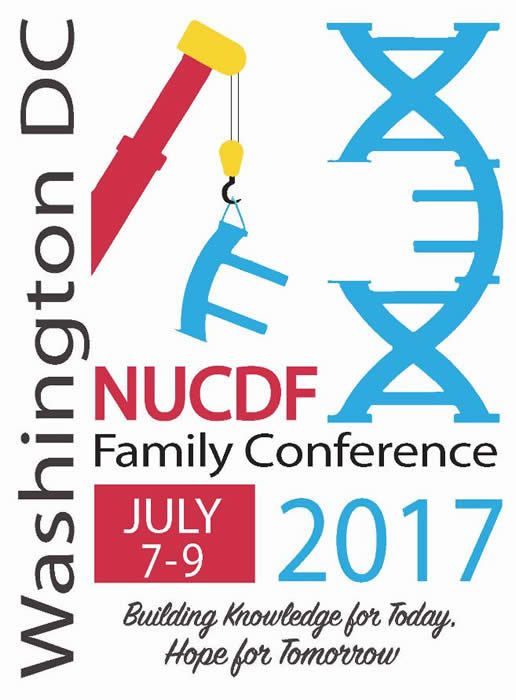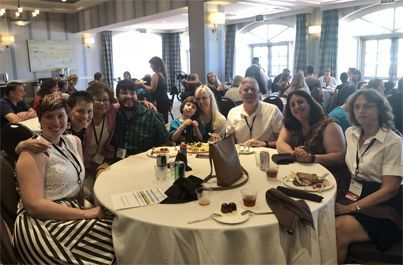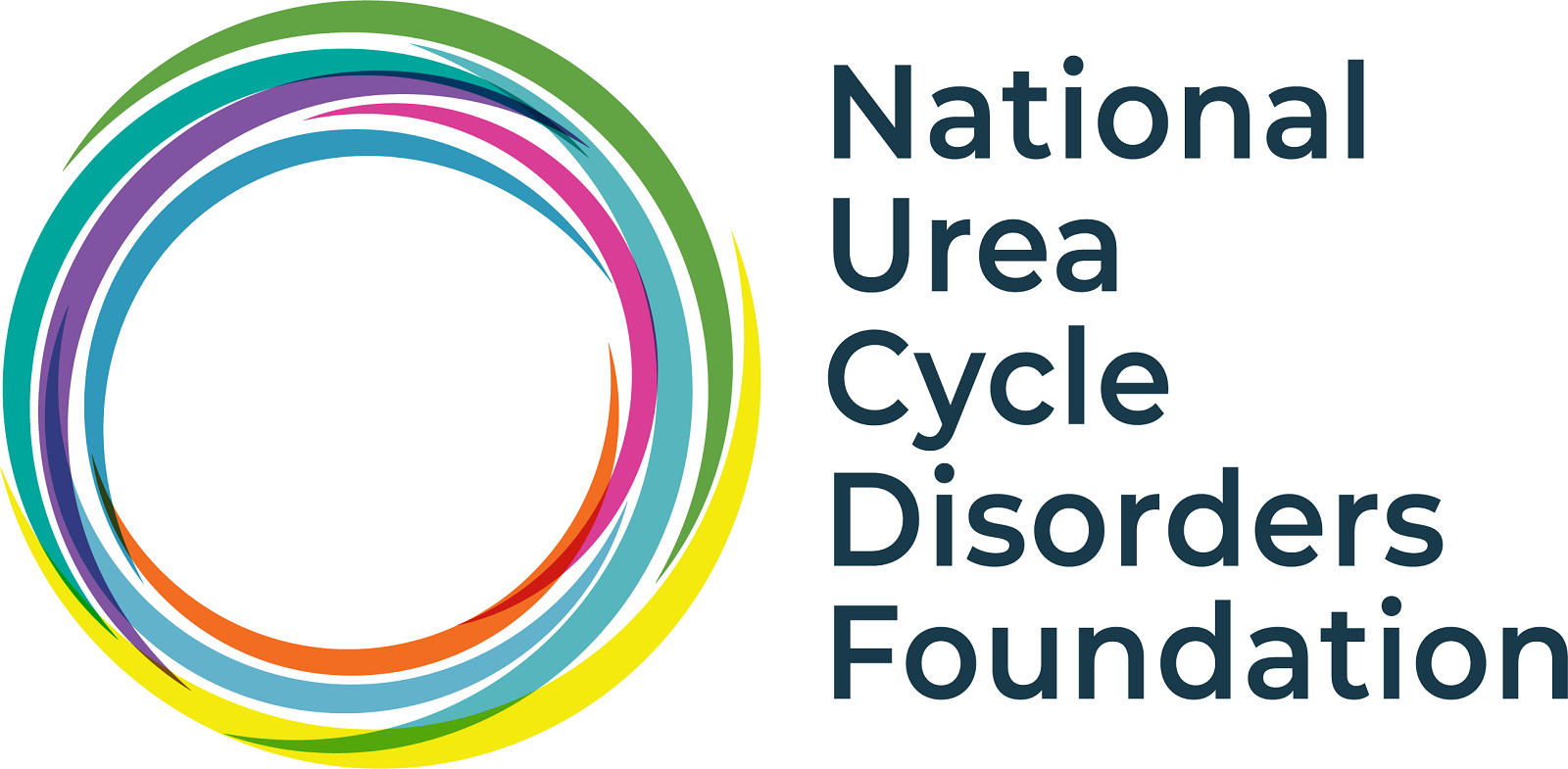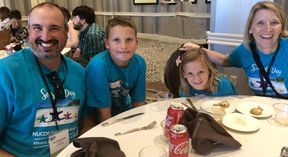2017 NUCDF Annual Family Conference

July 7-9, 2017
Grand Hyatt Washington
Washington, DC 20001
Connecting Families - Sharing - Learning
We're focused on a Cure. Our Someday is Now.
Over 160 UCD families, researchers and medical professionals met in Washington DC at the NUCDF Annual Family Conference for an empowering, life-changing weekend of knowledge and hope. Every year, the NUCDF Family Conference connects UCD patients, families, researchers and medical professionals to improve outcomes and accelerate research. The conference is a unique opportunity to learn about advances in research, new treatments, and cutting-edge management insights that can help improve the lives of children and adults with UCD. Families and medical professionals learn more about our research roadmap and what's on the horizon for UCDs.
Our conference hotel, Grand Hyatt Washington, was located in the heart of the US Capitol, steps away from the National Mall, Lincoln Memorial, Washington Monument, Smithsonian Museums, Veteran's Memorial, and all Washington DC has to offer for families who had the opportunity to stay an extra day or two.
Kids Kamp, our conference childcare, gave our UCD kids a chance to meet and play (and make life-long friends!) while parents attended the conference sessions.
Our conference was held in conjunction with a 2-day scientific meeting of our National Institutes of Health Rare Diseases Clinical Research Network Urea Cycle Disorders Consortium (UCDC). Now in its 13th year, the UCD Consortium is an international network of research and clinical "centers of excellence" that conducts pioneering research to improve the knowledge of UCDs, clinical trials for new treatments, and ongoing natural history studies of UCD patients. NUCDF is a partner in the UCDC in developing clinical trials for new treatments and research studies to advance the knowledge of UCD.
Conference activities included the latest research and treatment updates from UCD scientific and medical experts, workshops, breakout sessions, "Ask the Expert" panel discussions, and more! We had a huge turnout with standing room only in the breakouts!
While in Washington DC for the conference, families had an opportunity to individually participate in clinical research studies, including Dr. Gropman's neuroimaging study at George Washington University. For more details about participating in the studies, contact us or call NUCDF at (626)578-0833.
Two focus groups were conducted at the conference as part of our critically-important research study to evaluate treatment options and their outcomes, "Comparative Effectiveness of treatment in rare diseases: Liver Transplantation versus conservative treatment in urea cycle disorders." NUCDF provided travel and accommodations for UCD liver transplant families to join us at the conference (for many it was a reunion!) and participate in a study focus group about their experiences with transplant, and how they made the decision to transplant versus continuing with conservative treatment. A second focus group was held for families currently considering transplant or who had considered transplant at some point, as well as families who had chosen to continue with conservative treatment. The goal was to learn about their experiences and decision-making process to help develop new resources for families and medical professionals in making decisions about the treatment options. Additional focus groups will be conducted online this Fall with families who did not have the opportunity to travel to the conference. About the study and participation.
CONFERENCE PROGRAM AT A GLANCE
FRIDAY, JULY 7, 2017
Afternoon Workshops
1) New Family Orientation: Families new to our conference or newly diagnosed received an overview of the conference, the opportunity to meet a mentor family, and learn how to get the most benefit from the conference experience, including valuable context for the educational presentations and tips for interacting with other conference families and medical professionals. Families learned more about the importance of participating in the UCD International Patient-Reported Registry, and how to obtain access to NUCDF educational and support resources.
2) I didn't know that!: Families in this workshop were thrilled to have UCD expert, Dr. Brendan Lee (Baylor College of Medicine) leading the workshop. Dr. Lee gave families an overview of the pillars of UCD management and what they should know about the underlying mechanisms of UCD. Dr. Lee explained rationales behind managing the disorder that can help improve stability. Families received context for understanding clinical and laboratory findings that provide clues to maintaining stability and improving day-to-day management. It's was a great session (that went overtime!) and will be in big demand for next year's conference.
3) Living Lo-Pro--Designing Meals to Love!: Debra Hook, RD, MPH, UCD metabolic dietician and guru, introduced new ideas and recipes for creating healthy meals for the UCD diet and transforming your favorite recipes to lo-pro. Participants learned how use new lo-protein products and how to make lo-pro substitutions using "regular foods" the whole family can enjoy. The interactive workshop helped newly diagnosed families and everyone wanting a new approach to lo-pro increase their knowledge of practical strategies for UCD dietary management using real-life examples, easy-to-access products, and new tools.
Welcome Reception
Almost 200 Patients, Families, Kids and Medical Professionals attended the reception. Families had the opportunity to connect, network, sample low-protein foods, and meet their favorite UCD expert!
SATURDAY, JULY 8, 2017
Conference General Session, Luncheon and Breakouts
The General Session was followed by panel/breakout discussions moderated by clinical experts in UCD. Invited speakers, panelists and breakout moderators include distinguished clinical experts, members of the NIH Rare Diseases Clinical Research Network Urea Cycle Disorders Consortium, as well as UCD adults and families.
Our Keynote Address, Focus on Discovery – Hope versus Hype: New technologies in the research pipeline," was given by Brendan Lee, MD, PhD, Baylor College of Medicine, Houston TX. Dr. Lee is a renowned UCD expert and a favorite of our families. Dr. Lee's presentation focused on new research for UCDs, including gene and enzyme therapies. Dr. Lee highlighted the model collaboration with NUCDF to found the CureUCD Center for Preclinical Therapeutic Discovery to catalyze development of promising new technologies, like mRNA, that hold the promise of a cure for UCD. Dr. Lee cautioned families to be aware of research that's being "hyped" for investors and shareholders, versus what truly has promise for UCD patients, and that NUCDF was the most credible resource for information. He provided practical tips to help families make informed decisions and choices about participation in clinical trials. Dr. Lee described the different phases of clinical trial research, including Phase I safety trials that are specifically designed to test safety and reveal serious or fatal side effects, and Phase II and III trials that are designed to determine whether a treatment is effective or not. For more information: About Clinical Trials
Building Knowledge—MRI Imaging: Capturing changes in the brains of UCD patients at baseline and hyperammonemic crisis: Dr. Andrea Gropman updated conference participants on her pioneering studies using special neuroimaging techniques to understand the mechanisms of brain injury in urea cycle disorders. Earlier studies identified dysregulation in glutamine and other metabolites in the brain that may cause issues with executive function (focus, attention, memory, etc.) and mood and behavioral disorders. Dr. Gropman's current study focuses on identifying biomarkers in the brain that will help us more precisely define how specific UCDs affect brain function, cognition and behavior. A goal of the study is to understand how dysregulation of certain energy pathways in the brain may differ or be the same in OTC, CPS1, citrullinemia, ASL (argininosuccinic aciduria/argininosuccinate lyase deficiency), and arginase deficiency. Special neuroimaging techniques will also be used to identify abnormalities in the brain during acute hyperammonemic crisis, and monitor the duration and extent of recovery from crisis over time. These studies may help to predict outcomes and monitor how well treatment is working. About the neuroimaging studies for UCD.
Nitric Oxide Supplementation for Argininosuccinic Aciduria: Dr. Sandesh Nagamani provided background on the study and an update on the long-awaited clinical trial using nitric oxide supplementation for ASL that is currently enrolling at the Baylor site. About the clinical trial using nitric oxide for argininosuccinic aciduria.
Dr. Nagamani also provided the results of his work partnering with Dr. Juan Marini comparing sodium benzoate plus phenylbutyrate versus phenylbutyrate alone in optimizing control of ammonia. The results of the study have been accepted for publication by a major medical journal, and we plan to provide updates to UCD families and physicians about this treatment approach.
Liver Disease in Urea Cycle Disorders: Dr. Lindsay Burrage gave an update on studies to understand the increased incidence and risk of chronic liver disease in urea cycle disorders. Dr. Burrage's previous studies showed that chronic and more severe elevation of liver enzymes was more common in patients with ASL and arginase deficiency, but elevations were still seen in the other disorders, including OTC deficiency. Her study has been expanded to include formal testing for liver stiffness/fibrosis in patients with any of the urea cycle disorders. The goal of the study is to try to predict how common liver disease is in UCD and predict which patients will have liver disease. In addition, the study will help determine whether all patients with UCD should be routinely tested/monitored for liver disease, and will further the study cause and long-term effects of liver disease in UCD.
How to Eat Right When You’re Living in the Real World: Debra Hook, RD, MPH, talked straight to the point for families dealing with the UCD low-protein diet, providing insights and practical tips about making common-sense food choices every day of the year.
Patient-Powered Research Updates: Jan Bartos, BSN, NUCDF Study Coordinator, provided participants with updates and information on our patient-powered research studies, activities and results to date. Topics included the liver transplant versus conservative treatment outcomes study, the UCD International Patient Reported-Outcome Registry, the Next-Generation Sequencing Study for UCD patients who have not had a genetic mutation confirmed, and NUCDF's collaborations with the Urea Cycle Disorders Consortium to develop and accelerate new UCD studies. Jan included feedback and experiences from families who had participated in studies and information on how to engage in current and future studies.
Life Strategies for Living with UCD: Emily Rohrer, adult with OTC, shared her inspiring story about growing up with OTC, her struggles and successes, along with insights and practical strategies that have helped guide her through day-to-day life with UCD. Emily answered questions from parents of children with UCD and shared her experiences on a variety of helpful topics, including eating healthy, monitoring her stability, choosing to adopt versus the risk of pregnancy, and maintaining a balanced home and work life.
Growing up with Transplant: Torrey Thomas is an adult who received a liver transplant for citrullinemia at age 3 almost 20 years ago. Torrey shared her story and experiences living with transplant from a young age to adulthood. Torrey had inspirational insights for parents and adults who are new to transplant as well as those who are dealing with UCD.
INVITED SPEAKERS AND TOPICS
- Keynote Speaker, Brendan Lee, MD, PhD, Robert and Janice McNair Endowed Chair in Molecular and Human Genetics, Professor and Chairman of the Department of Molecular and Human Genetics, Baylor College of Medicine, Houston TX.
- Andrea Gropman, MD, Child Neurologist and Clinical Geneticist, Professor of Neurology and Director of the Neurogenetics Program at Children’s National Health System, Washington DC.
- Sandesh Nagamani, MBBS, MD, Assistant Professor and Director of the Clinical Research Division, Molecular and Human Genetics, Baylor College of Medicine, Houston TX.
- Emily Rothbaum-Perito, MD, MAS, Assistant Professor,
- Department of Pediatrics, Division of Gastroenterology,
- Hepatology and Nutrition, Department of Epidemiology and Biostatistics, University of California, San Francisco.
- Lindsay Burrage, MD, PhD, Assistant Professor, Department of Molecular and Human Genetics, Baylor College of Medicine, Houston TX.
- Debra Hook, RD, MPH, Metabolic Dietician, UC Davis, Children's Hospital Los Angeles, University of Southern California.
- Maya T. Gerstein, MPH, Research Scientist, Department of Health Policy & Management, Milken Institute School of Public Health, The George Washington University
- Janice Bartos, BSN, RN, Research Study Coordinator, National Urea Cycle Disorders Foundation, Pasadena CA
STAY INFORMED!
If you weren't able to attend the conference, you'll want to stay up to date on the latest developments in our UCD world. If you are not already a member of NUCDF, please accept this personal invitation to join us, stay informed and be part of our international UCD community! Membership is free, but the benefits are priceless. Let's keep research momentum going. Together, we WILL find a way to end the devastating effects of UCD!
Our Dream is a Cure, and we can't rest until we find it...

Comments from our UCD community:
"I'm so excited to be going to my 1st conference!"~JA
"It's always amazing. We go to the conference every year we can, and we always leave with more information that helps us care for our son. Because of the research we learn about at the conference, we have hope for his future." ~BR
"We left exhausted but hopeful and excited to put what we've learned to use right away. We plan to stay in touch with the other families we met and see them again at next year's conference. Thanks to NUCDF for being there for all of us!" ~ED

